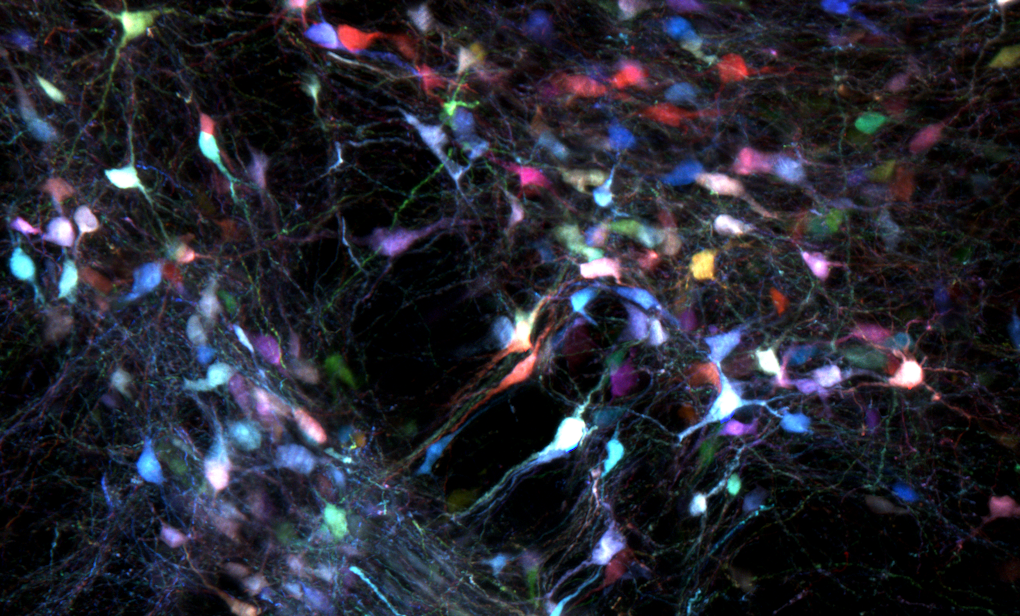
The Simons Foundation Autism Research Initiative (SFARI) is pleased to announce that it has selected five fellows in response to the 2019 Bridge to Independence Award request for applications (RFA).
Launched in 2015, the Bridge to Independence Award is a funding mechanism that helps early-career scientists transition from mentored training positions to independent careers in autism research. The program is aimed at Ph.D.- and M.D.-holding scientists with an interest in autism research, who are currently in training positions but intend to seek tenure-track faculty positions during the upcoming academic year. After being notified, the fellows have one year to secure a tenure-track professorship at a U.S. or Canadian research institution. Once approved by SFARI, each fellow will receive a commitment of $495,000 over three years through their institution.
“Transitioning from a dependent to an independent research position is an exciting milestone in a scientist’s career, but it can be very challenging. It is our hope that these awards will really make the difference in helping young, talented scientists to launch their own labs and jumpstart their research as independent investigators,” says Alice Luo Clayton, SFARI senior scientist who oversees the BTI program.
Finalists were selected through a competitive review process. The distinguished scientific review panel included Ted Abel, Ph.D. (director, Iowa Neuroscience Institute and chair, Department of Neuroscience & Pharmacology, University of Iowa), Aravinda Chakravarti, Ph.D. (director, Center for Human Genetics and Genomics, New York University School of Medicine), Genevieve Konopka, Ph.D. (associate professor, University of Texas Southwestern Medical Center), David Lewis, M.D. (distinguished professor of psychiatry and neuroscience, Thomas Detre Professor of Academic Psychiatry, and chair, Department of Psychiatry, University of Pittsburgh), and Kelsey Martin, M.D., Ph.D. (dean, David Geffen School of Medicine, University of California, Los Angeles). Members of the panel carefully evaluated the quality of the applicants, the scientific merit of their research proposal and their commitment to autism research.
“I am thrilled to be part of the BTI program and was impressed with the high quality of the applications,” says Konopka. “I look forward to following the scientific endeavors of the BTI fellows in the years to come.”
The five awardees are:
- Nicholas Frost, M.D., Ph.D.
Current position:
Adjunct clinical instructor in the laboratory of Vikaas Sohal, M.D., Ph.D. (University of California, San Francisco)
Proposed research project:
Disassembling behaviorally relevant cell assemblies in the Shank3 autism mouse model
Individuals with autism often demonstrate challenges in social behaviors. The Shank3 knockout autism mouse model also exhibits abnormalities in social interactions, as well as increases in neuronal excitability and disruptions in both local and long-range neuronal connectivity. This project will combine in vivo multi-region calcium imaging and trans-synaptic labeling approaches to understand how loss of Shank3 affects communication across distributed circuits during social behaviors. - Ethan Greenblatt, Ph.D.
Current position:
Postdoctoral fellow in the laboratory of Allan Spradling, Ph.D. (Carnegie Institution for Science)
Proposed research project:
Understanding and reversing large protein underproduction in models of fragile X-associated disorders
Mutations in the fragile X mental retardation 1 (Fmr1) gene lead to fragile X syndrome (FXS), the most common heritable cause of intellectual disability and autism. The Fmr1 gene product, fragile X mental retardation protein (FMRP), is an RNA-binding protein with a suggested role in regulating neuronal protein synthesis. Recently, Ethan Greenblatt demonstrated, in the Drosophila oocyte model system, that FMRP acts on specific mRNAs encoding large proteins, leading to an increase in their protein production2. The current proposal will extend this work by examining the precise target RNA sequences that allow FMRP to promote large protein synthesis and identifying additional proteins that aid in this process. This knowledge will then be utilized to develop novel molecules that can rescue Fmr1 function, serving as potential therapeutic agents for FXS. - Fenna Krienen, Ph.D.
Current position:
Postdoctoral fellow in the laboratory of Steven McCarroll, Ph.D. (Harvard Medical School)
Proposed research project:
Understanding conservation and divergence of autism risk gene expression across human genetics and animal models
Animal models of autism spectrum disorder (ASD) have led to critical insights into neurobiological mechanisms that may contribute to ASD. However, evolutionary differences between these animal model systems and humans have implications for how well such models can aid in our understanding of ASD mechanisms. The current proposal will use single-cell RNA sequencing to examine how key brain structures, cell types and circuits relevant to ASD are conserved or differ across humans, nonhuman primates and mice. Focus will be placed on comparisons across development and on the effects of mutations in the ASD risk gene SHANK3. - J. Elliott Robinson, M.D., Ph.D.
Current position:
Postdoctoral fellow in the laboratory of Viviana Gradinaru, Ph.D. (California Institute of Technology)
Proposed research project:
Leveraging systemic adeno-associated viral vectors to ameliorate autism-associated phenotypes in a mouse model of neurofibromatosis type 1
Neurofibromatosis type 1 is an autosomal dominant neurodevelopmental disorder caused by loss of one functional copy of the NF1 gene, which codes for the neurofibromin protein. NF1 haploinsufficiency leads to deficits in cognitive function and the development of autism-related features. Using recently developed systemic adeno-associated virus (AAV) vectors that freely cross the blood-brain barrier, this proposal will assess the therapeutic potential of restoring neurofibromin function throughout the brain of NF1 model mice. This approach includes expression of a neurofibromin functional domain and CRISPR-mediated upregulation of the NF1 gene in order to improve behavioral and cellular phenotypes. - Hume Stroud, Ph.D.
Current position:
Postdoctoral research fellow in the laboratory of Michael E. Greenberg, Ph.D. (Harvard Medical School)
Proposed research project:
DNA methylation in brain development and autism spectrum disorder
Accumulating evidence indicates that autism spectrum disorder (ASD) susceptibility mutations are frequently found within genes encoding chromatin regulators, particularly those affecting DNA methylation. Further, aberrant DNA methylation patterns have been seen in ASD brains. This proposal will assess potential regulatory mechanisms affecting the activity of the DNA methyltransferase DNMT3A, a known ASD risk gene, as well as downstream effects on the neuronal methylome. The study will also examine whether rescue of DNMT3A function can improve neurological deficits in a DNMT3A mouse model.
References
- Bridge to Independence fellows meeting highlights research findings and plans of the next generation of SFARI autism scientists
- SFARI announces 2018 Bridge to Independence awardees
- A Conversation with SFARI Bridge to Independence Investigator Seth Shipman
- A Conversation with SFARI Bridge to Independence Investigator Sung Han


